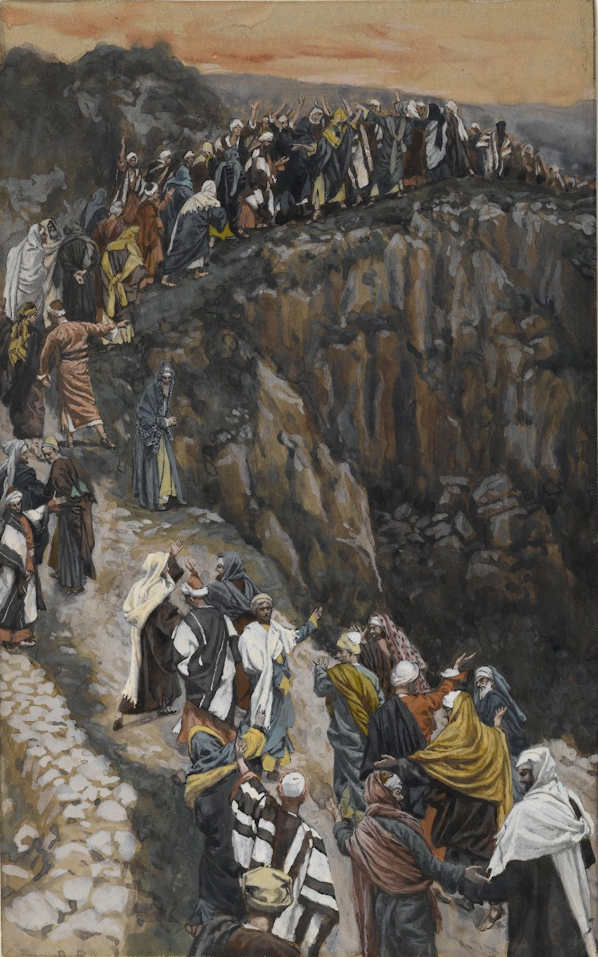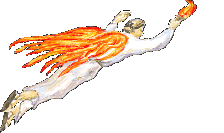Zero Sum
If one were to confront an adherent of 'scientism' and demand, 'Defend if you can
the existence of phlogiston or the luminferous aether,' he would respond in puzzlement, 'Why should
I want to defend those things?' 'Well, because they are the center-piece
of naturalistic scientific theories.' 'To be sure they are, but those theories have been
falsified.' No one expects that, if you buy into science, you must
buy in bulk: that either all scientific theories are false, or all
are true.
Oddly enough some people think this way about god-claims, and
there are even pseudo-scientific and pseudo-scholarly disciplines
that proceed by levelling the field between these various
god-claimants. But just as the theory of phlogiston and the theory
that burning is rapid oxygenation cannot both hold the field,— they
are incompatible,— so the various god-claimants cannot all stand
vindicated, because they debunk one another's claims. Two
contradictory claims cannot both be true; either both are false, or
only one is true. It is odd that this point should require
explanation.

James the Just
Jesus suffered many insults during His earthly ministry, including the jibes of Roman
soldiers, the gainsaying of the religious authorities, and even the
exquisite cruelty of hearing family members say that He was crazy,
in accordance with the scriptures:
"I gave my back to the smiters, and my cheeks to them that plucked off the hair: I hid not my face from shame and spitting."
(Isaiah 50:6).
After the resurrection, Mary,— if indeed she
ever doubted,— turns up in the upper room and James the Just emerges as the
leader of the Christian church at Jerusalem. Although he did not
sit at Jesus' feet to hear His teaching as did Peter and the
other disciples, his family connection to Jesus was undoubtedly
one recommendation in the public mind for this office, as was
his personal sanctity:
"Hegesippus who lived near the apostolic age, in the fifth
book of his Commentaries, writing of James. says “After the apostles,
James the brother of the Lord surnamed the Just was made head of the
Church at Jerusalem. Many indeed are called James. This one was holy
from his mother’s womb. He drank neither wine nor strong drink, ate no
flesh, never shaved or anointed himself with ointment or bathed. He alone
halt the privilege of entering the Holy of Holies, since indeed he did not
use woolen vestments but linen and went alone into the temple and prayed
in behalf of the people, insomuch that his knees were reputed to have
acquired the hardness of camels’ knees.” He says also many other things,
too numerous to mention. Josephus also in the 20th book of his
Antiquities, and Clement in the 7th of his Outlines mention that on the
death of Fetus who reigned over Judea, Albinus was sent by Nero as his
successor. Before he had reached his province, Ananias the high priest, the
youthful son of Ananus of the priestly class taking advantage of the state
of anarchy, assembled a council and publicly tried to force James to deny
that Christ is the son of God. When he refused Ananius ordered him to be
stoned. Cast down from a pinnacle of the temple, his legs broken, but still
half alive, raising his hands to heaven he said, “Lord forgive them for they
know not what they do.” Then struck on the head by the club of a fuller
such a club as fullers are accustomed to wring out garments with — he
died. This same Josephus records the tradition that this James was of so
great sanctity and reputation among the people that the downfall of
Jerusalem was believed to be on account of his death. He it is of whom the
apostle Paul writes to the Galatians that “No one else of the apostles did I
see except James the brother of the Lord,” and shortly after the event the
Acts of the apostles bear witness to the matter." (Jerome, Lives of Illustrious
Men, Chapter 2).
How did James make the jump from skeptic to believer?
According to Paul, he was the recipient of a post-resurrection
appearance by the crucified and risen Savior: "And that he was
seen of Cephas, then of the twelve: After that, he was seen of
above five hundred brethren at once; of whom the greater part
remain unto this present, but some are fallen asleep. After
that, he was seen of James; then of all the apostles." (1
Corinthians 15:5-7). The "James" of verse 7 is not one of the
twelve, so presumably he was James the Just. Seeing your dead
brother alive and kicking would certainly
get your attention. The story of his conversion is told in
non-canonical sources not now extant, so one cannot
evaluate their reliability; the story might be fiction.
Nevertheless, Jerome thought it worth recounting:
"The Gospel also which is called the Gospel according to
the Hebrews, and which I have recently translated into Greek and
Latin and which also Origen often makes use of, after the account of
the resurrection of the Savior says, “but the Lord, after he had
given his grave clothes to the servant of the priest, appeared to
James (for James had. sworn that he would not eat bread from that
hour in which he drank the cup of the Lord until he should see him
rising again from among those that sleep)” and again, a little
later, it says ”’Bring a table and bread,’ said the Lord.” And
immediately it is added, “He brought bread and blessed and brake and
gave to James the Just and said to him, ‘my brother eat thy
bread, for the son of man is risen from among those that sleep.’”
And so he ruled the church of Jerusalem thirty years, that is until
the seventh year of Nero, and was buried near the temple from which
he had been cast down. His tombstone with its inscription was well
known until the siege of Titus and the end of Hadrian’s reign."
(Jerome, Lives of Illustrious Men, Chapter 2).

|








